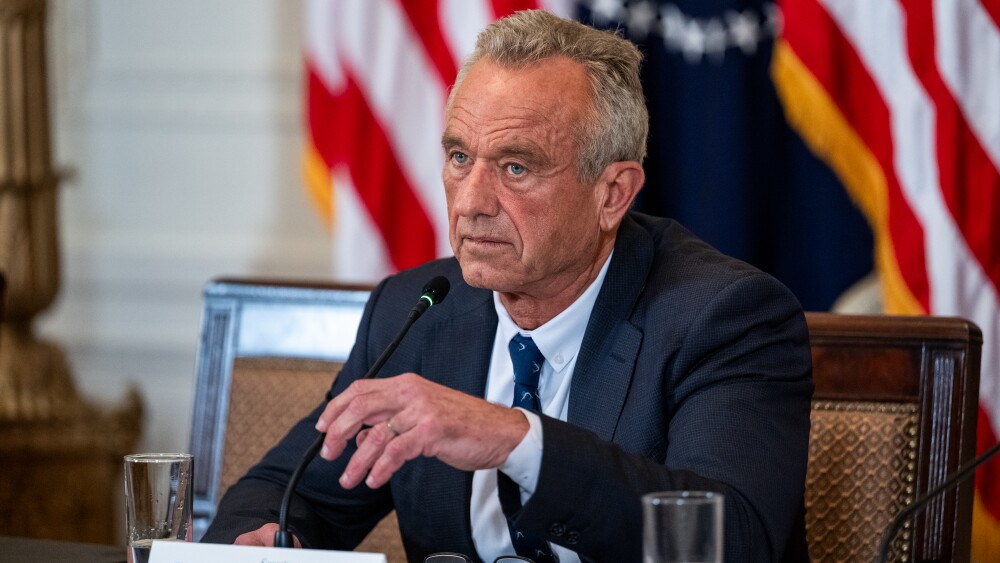It’s a landmark no one expected or wanted — more than 70 million confirmed COVID-19 cases in the U.S. with 866,000 deaths. For that and more COVID-19 news, continue reading.
Kena Betancur/Getty Images
It’s a landmark no one expected or wanted — more than 70 million confirmed COVID-19 cases in the U.S. with 866,000 deaths. For that and more COVID-19 news, continue reading.
1 in 5 Americans — At Least! — Have Been Infected with COVID-19
The first confirmed case of COVID-19 in the U.S. was reported on January 21, 2020. Since then, there have been more than 70 million confirmed cases in the U.S., with 866,000 deaths as of Friday, January 21, 2022. However, the number is probably higher due to unreported asymptomatic cases. In addition, the Johns Hopkins Coronavirus Resource Center reported about 210 million people in the U.S. are fully vaccinated, or about 64% of the population. It varies significantly on region, as low as 49% in Alabama and Wyoming to 87% in Washington, DC.
Globally, there have been approximately 350 million cases of COVID-19, with more than 5.5 million deaths. The U.S. Centers for Disease Control and Prevention (CDC) reported that “As of January 19, 2022, the current 7-day moving average of daily new (U.S.) cases (744,616) decreased 5.0% compared with the previous 7-day moving average (783,922).”
What We Know About Omicron
The Omicron variant of SARS-CoV-2 now makes up more than 99.5% of new COVID-19 infections in the U.S. As reported, it is significantly more infectious than previous strains, including the Delta variant. In mid-January, there were 800,000 new cases of COVID-19 reported, more than three times as many at any other time in the pandemic. Early variants of the virus had an incubation period of approximately five days, but the Delta variant was about four days, and Omicron is about three days.
Although the data is not solid, Omicron seems less able to infect the deep lungs, but it may replicate faster in the upper respiratory tract. One small research study suggests that although an Omicron infection offers protection against Delta, a Delta infection doesn’t protect much against Omicron. These factors might be why Omicron appears to cause less severe disease and fewer hospitalizations, although another possible explanation is that the population has built up some immunity via vaccines and previous infections. However, unvaccinated individuals seem less likely to be hospitalized with Omicron than with Delta.
New data from the CDC shows that booster shots of the Pfizer-BioNTech and Moderna vaccines were 90% effective at preventing hospitalization after Omicron infection. They were also 82% effective at preventing emergency department and urgent care visits. CDC data also found that people who received three doses of either the mRNA vaccines were less likely to be symptomatic compared to people who only received the two primary doses.
FDA Approved Gilead’s Veklury for Non-Hospitalized High-Risk COVID-19 Patients
The U.S. Food and Drug Administration approved Gilead Sciences’ supplementary New Drug Application (sNDA) for Veklury (remdesivir) for adults and adolescents with COVID-19 who are not hospitalized but are at high risk of progression to severe COVID-19, hospitalization or death. The agency also expanded the pediatric Emergency Use Authorization (EUA) for the drug to include non-hospitalized children 12 years or younger at high risk of disease progression.
“Remdesivir has now helped to treat more than 10 million people around the world with COVID-19 and continues to play a key role in helping to reduce the burden of the pandemic,” said Daniel O’Day, Chairman and Chief Executive Officer of Gilead. “Based on the most recent data, we now understand that remdesivir is also effective in the early stages of COVID-19 infection, in addition to helping patients who are hospitalized with the disease.”
Moderna Vaccine Better than Pfizer-BioNTech Against Delta Breakthrough Cases
A study published in JAMA demonstrated that the Moderna COVID-19 vaccine offered more protection than the Pfizer-BioNTech shots from breakthrough infections during the Delta surge in the U.S. It was based on electronic health records from 637,000 fully vaccinated patients from 63 healthcare organizations in the U.S. from July to November 2021. Those receiving the Moderna shots were likely to have breakthrough cases and less likely to be hospitalized. The data showed 2.8 breakthrough cases per 1,000 people with the Pfizer-BioNTech shots and 1.6 breakthrough cases per 1,000 for Moderna in November 2021, with a 60-day hospitalization rate of 13.3% for Pfizer-BioNTech and 12.7% for Moderna. The 60-day mortality rate was low for both, 1.14% for Moderna and 1.10% for Pfizer-BioNTech.
The Question of COVID-19 Vaccines for Kids 5 and Under
When, or if, a COVID-19 vaccine will be authorized for children under the age of 5 remains something of an open question and a moving target. In September 2021, Pfizer chief Albert Bourla said the data would arrive “before the end of the year.” But didn’t.
Then, just before Christmas, the company released a statement that two child-sized doses of the vaccine didn’t provide enough immune response in this age group. Then they announced they would evaluate a third injection eight weeks after the second with a new timeline for data in the “first half of 2022,” maybe April.
Dr. Anthony Fauci, the Biden Administration’s Chief Medical Adviser, said potentially three mini-shots would be authorized “within the next month or so,” but reversed it, saying it was a hope, not a guarantee. At this time there is no public data on the Pfizer-BioNTech vaccine in this age group. Although speculative, it sounds like they are having problems identifying a good balanced dosing schedule and amount to get a good antibody response while avoiding side effects.
Dr. Sallie Permar, a pediatrician, immunologist, and vaccinologist at Weill Cornell Medical Center, told The Atlantic, because the risk of contracting serious cases of COVID-19 in this age group is relatively low, the vaccines “have to be supersafe, remarkably safe. These are healthy, young children who might not be able to say, ‘I feel crummy.’”
FBI Searches H.Q. of Center for COVID Control
Over the weekend, the FBI searched the Center for COVID Control headquarters, a national network of coronavirus testing sites. They are under investigation by state and federal entities. The Minnesota Attorney General’s Office filed a consumer-protection lawsuit against the company and its lead laboratory, Doctors Clinical Lab, alleging they provided “inaccurate and deceptive” test results and fraudulently reported negative test results.
Siobhan Johnson, a spokesperson for the FBI’s Chicago office, told USA Today on Sunday, “The FBI was conducting court-authorized law enforcement activity in Rolling Meadows yesterday.”
At its busiest, the Center for COVID Control ran more than 300 locations in at least 26 states, collecting more than 80,000 tests per day.
The company is also being investigated by the Illinois Attorney General’s Office, the Oregon Department of Justice, and the Centers for Medicare & Medicaid Services (CMS). CMS has documented numerous “deficiencies” at the lab, which received reimbursement funds from the federal COVID-19 uninsured program, as well as private health insurers. It has received more than $124 million in reimbursements from the federal government.





